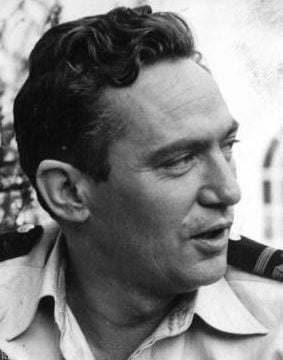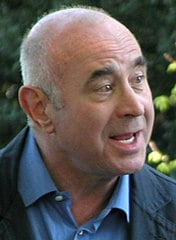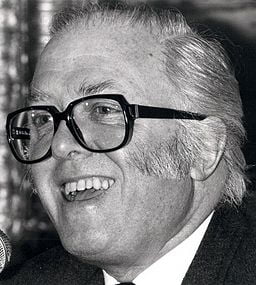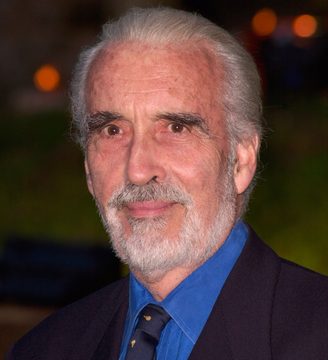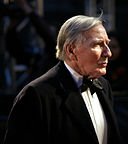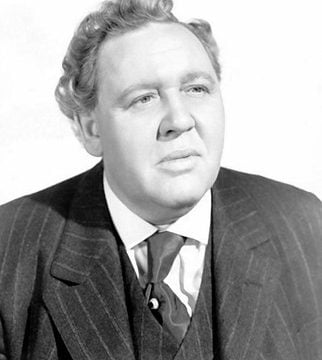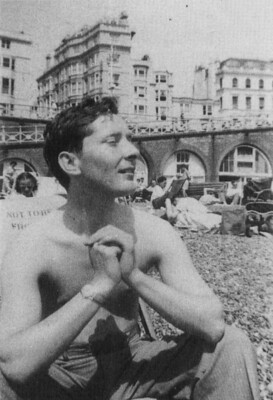
Early Life
The British comedic actor Kenneth Williams was born on 22 February 1926 in Kings Cross, London, England. His parents, Charles and Louisa Williams managed a hairdresser salon in the area. He had a half-sister, Patricia, who was three years his senior. He was educated at The Lyulph Stanley Boys’ Central Council School in Camden Town, North London. Williams left school at the age of 14 and began training as a lithographic draftsman. Later, he became a cartographer’s apprentice. It was then that he pursued his interest in acting by joining a local amateur drama group.
In 1944, towards the end of World War II, Williams, aged 18, was conscripted into the British Army. He joined the Royal Engineers, initially working in the Survey Section. When the war ended in 1945, Williams found himself in Ceylon (Sri Lanka) but requested a transfer to the Combined Services Entertainment Unit in Singapore. He remained with the unit until the end of his military service in 1948.
Early Career
In 1948, Williams opted for a life back in civvie street and began his professional acting career working in Britain’s repertory theatre. His great ambition was to become a respected dramatic actor. However, things did not quite work out for him and he eventually ended up back in the capital working in London’s West End.
It was there, in 1954, that his potential comic talent was spotted by the radio producer Dennis Main Wilson. Wilson went on to cast him in the popular radio show of the time ‘Hancock’s Half Hour’. Williams turned out to be a big hit on the show and stayed for almost 5 years. He then went on to make several other successful BBC radio shows, while maintaining a career on the London stage.
Film Career
In 1958, Williams was cast as Private James Bailey in a low-budget comedy film about National Service in the British Army. The film Carry On Sergeant, the first in the ‘Carry On’ series, became a box-office hit. The franchise went on to produce a further 29 films in the 20 years that followed. The scriptwriters of the bawdy comedies stuck to the simple formula of silliness and innuendo, which had proved so successful in the first film, throughout the series.
All the Carry On films were made extremely cheaply, and although slammed by the critics, almost all were a commercial success. Williams often lamented about the quality of the ‘Carry On’ productions and the low pay (around £5,000 per film) but continued to appear in them. In fact, he co-starred in all but four of the thirty films, making more appearances in them than any other actor.
Apart from the Carry On series, Williams made some further 15 films during his career, most of which were also comedies. His last onscreen film appearance was in ‘Carry On Emmanuelle’ in 1978. However, he did voice two parts in the animated fantasy film ‘The Thief and the Cobbler’. The film, after suffering years of delay, was eventually released in 1993 but was a box-office flop. Williams appeared in more than 40 films in total but also wrote extensive for own TV shows between 1970 and 1983.
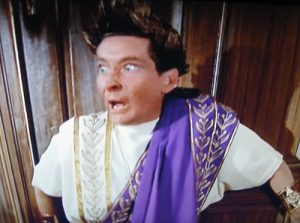
Williams as Julius Caesar in Carry on Cleo (1964). Photo credit: Flickr/CC BY-SA 2.0 DEED
TV and Radio
By the effective end of his film career in 1978, Williams was a household across Britain. Not only because of the success of the Carry On films but also due to his exposure on TV and radio. He had made regular appearances on the BBC radio’s long-running comedy show ‘Just a Minute’, from 1968 until his death in 1988. Williams even had his own BBC television show that was screened in 1970. However, the show ultimately proved to be less than a success and was scrapped after one series.
Williams was also highly regarded as one of the best showbiz raconteurs of his generation. This saw him become a favoured guest on numerous TV chat shows during the 70s and 80s. On of the most popular of these shows was Parkinson, on which he made no less than eight appearances. He also stood in for Terry Wogan as host on another big chat show of the era.
Trademark Williams
During his career, Williams was particularly renowned for his camp demeanour and his trademark posh, whiny, nasal accent. He became particularly associated with the phrase ”Ooh matron”. The phrase dated back to his early Carry On days. It was very much the standard response to any action or double entendre made by Hattie Jacques’s hospital matron character.
Williams also achieved recognition for one particular line made during his film career. In his ninth outing in the Carry On series, Williams was cast as Julius Caesar in ‘Carry On Cleo’ (1964). In the character of Caesar, Williams delivered the line “Infamy, infamy, they’ve all got it in for me!”. The classic Carry On quip has been voted as one of the funniest one liners of all time from any film.
Personal Life
Kenneth Williams famously kept his personal life very private. From his early forties onwards, he publicly claimed to be both asexual and celibate. He lived alone all his adult life, having few close friends or any professed romantic relationships. The few good friends that he did have included the high-profile gay playwright Joe Orton, and a few fellow actors. However, he also did enjoy good relationships with several members of the Carry On team. These famously included Barbara Windsor, Hattie Jacques and Joan Sims.
Williams always maintained a very close relationship with his mother. After Williams’s homophobic father died in 1962, his mother moved close by to wherever he happened to be living. His last home was a flat on Osnaburgh Street, Bloomsbury. His mother had taken residence in the flat next door.
Death and Diaries
Kenneth Williams died on 15 April 1988 in his London flat with the cause being recorded as an overdose of barbiturates. His famous last words as recorded in his diary, were “Oh, what’s the bloody point?” The inquest recorded an open verdict as it could not be determined whether his death was suicide or accidental.
Williams experienced failing health in later life which only added to his depression. Nonetheless, there were still those that felt that the self-medicating Williams had not taken his own life but died of an accidental overdose. This was backed up in part by the fact he left nothing in his will to his mother, who it was argued, he had obviously expected to outlive. He was cremated at East Finchley Cemetery, where his ashes were scattered in the memorial gardens.
Williams wrote several autobiographies from 1980 onwards and co-authored a children’s book in 1986. Several biographies were written about him after his death and his private diaries and letters were published in 1994. In 2014, an English Heritage blue plaque was unveiled at Farley Court off Marylebone Road. The plague revealed that Williams had lived there between 1963 and 1970.
Header image credit: Flickr/CC BY-SA 2.0 DEED
